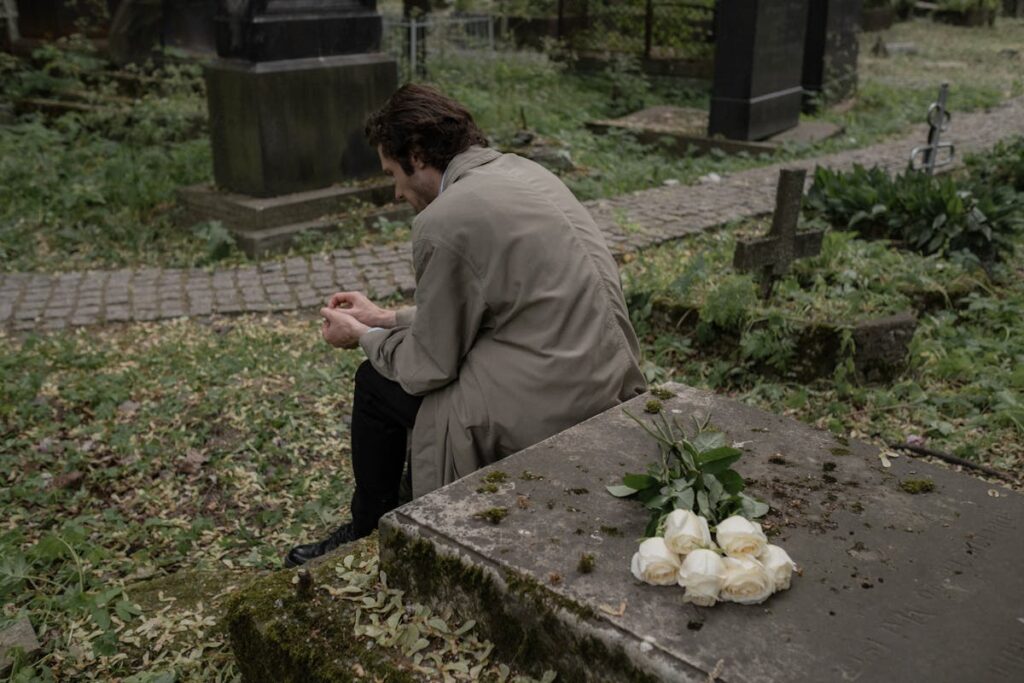Determining if you have a wrongful death claim involves understanding several legal criteria. The claim must stem from another’s negligence or intentional act, causing the death. Evaluating if there’s a direct causal link and quantifiable damages, such as financial loss, is vital. Identifying responsible parties and gathering evidence forms the foundation. Consulting a knowledgeable wrongful death attorney can clarify specifics and outline legal rights, presenting avenues for possible compensation. The journey is intricate yet essential.
Understanding the Concept of Wrongful Death
Although the concept of wrongful death may initially seem straightforward, it encompasses a complex legal framework designed to address the loss of life due to another’s negligence or wrongful act. This framework aims to recognize the profound emotional impact on the deceased’s survivors and guarantee their rights are upheld. Legal experts meticulously evaluate each case, focusing on the survivor rights to seek compensation for both emotional and financial losses. The law considers factors such as the nature of the negligent act and its direct effect on the survivors’ lives. By acknowledging the emotional burden borne by the bereaved, the legal system endeavors to provide a sense of justice and financial relief, facilitating a path toward healing and closure for those left behind.
Legal Criteria for a Wrongful Death Claim
Several critical elements must be established for a wrongful death claim to be valid. To begin with, the death must have been caused by the negligence or intentional act of another party, breaching a duty of care owed to the deceased. In addition, there must be a direct causal link between the wrongful action and the death. Additionally, the deceased’s family must demonstrate that they have suffered quantifiable damages as a result of the loss. Legal requirements also stipulate that the claim must be filed by a representative of the deceased’s estate, typically a close family member. Each jurisdiction may have specific statutes governing wrongful death claims, therefore necessitating a thorough understanding of relevant local laws to guarantee compliance and successful litigation.
Common Causes of Wrongful Death
In the domain of wrongful death claims, medical malpractice and workplace accidents frequently emerge as significant contributors. Medical malpractice cases often involve critical errors such as misdiagnosis or surgical mistakes, which can tragically lead to a patient’s premature death. Similarly, workplace accidents, often resulting from inadequate safety measures or hazardous conditions, are another prevalent cause, highlighting the urgent need for stringent safety protocols and accountability.
Medical Malpractice Cases
Medical malpractice remains a significant source of wrongful death claims, often arising from errors that could have been prevented with due diligence. Medical negligence encompasses a range of actions, including misdiagnosis, surgical errors, and improper treatment. When healthcare professionals fail to meet the standard of care, they breach patient rights, leading to tragic outcomes. Each case demands a thorough examination of medical records and expert testimony to establish liability. Legal professionals meticulously evaluate whether the healthcare provider’s actions directly caused the patient’s death. Successful claims provide families with a sense of justice and financial relief. Understanding the complexities of medical malpractice is essential for those seeking to navigate the legal landscape and hold accountable those responsible for preventable losses.
Workplace Accident Triggers
Workplace accidents account for a significant portion of wrongful death claims, highlighting the essential need for stringent safety measures. Inadequate adherence to safety regulations often results in tragic outcomes, attributable to preventable workplace hazards. Common triggers include falls from heights, exposure to toxic substances, and equipment malfunctions. Each incident underscores the necessity for employers to rigorously implement and monitor safety protocols. Legal experts emphasize that employers have a duty to maintain a safe working environment, ensuring compliance with occupational safety standards. When these obligations are neglected, the consequences can be catastrophic, warranting legal recourse for the bereaved. Understanding these factors is vital for evaluating potential wrongful death claims, offering a pathway for families seeking justice and accountability in the wake of such tragedies.
Identifying the Responsible Parties
How does one determine who is responsible in a wrongful death claim? It begins by identifying negligence and evaluating liability among potential parties involved. This process requires a meticulous examination of the circumstances leading to the death. Legal experts evaluate whether a duty of care was owed and subsequently breached. They scrutinize actions or inactions that may have contributed to the tragedy. By pinpointing lapses in standard practices or safety protocols, one can identify those legally accountable.
Moreover, the analysis extends to include all entities whose decisions or lack thereof played a role. A compassionate approach is essential, understanding the emotional gravity of the situation while diligently pursuing justice. This guarantees that responsible parties are held accountable, providing closure and potential compensation for the bereaved.
Gathering Evidence for Your Claim
A significant step in building a robust wrongful death claim involves gathering compelling evidence to support the case. Evidence types can range from medical records and accident reports to photographs and expert testimonies. Thorough documentation is essential to establish the circumstances surrounding the death and to demonstrate the liable party’s negligence or misconduct.
Witness statements are a key component, providing firsthand accounts that can corroborate the sequence of events leading to the wrongful death. Interviews should be conducted promptly to preserve the accuracy of these statements. In addition, expert witnesses, such as medical professionals or accident reconstruction specialists, may offer invaluable insights. Their specialized knowledge can substantiate claims of negligence, reinforcing the case’s strength and ensuring the victim’s family receives the justice they deserve.

The Role of Statute of Limitations
Understanding the intricacies of wrongful death claims requires awareness of the statute of limitations, a vital factor that can greatly impact the viability of a case. A statute explanation is fundamental for understanding the time constraints placed on filing such claims. Each jurisdiction enforces specific filing deadlines, typically ranging from one to three years from the date of death. Failure to adhere to these deadlines can result in the forfeiture of the right to seek legal redress. Additionally, exceptions may exist, such as the discovery rule, which can extend the period if the cause of death was not immediately apparent. It is essential for claimants to seek prompt legal counsel to navigate these complexities and guarantee compliance with all procedural requirements.
Calculating Damages in a Wrongful Death Case
While calculating damages in a wrongful death case involves a complex interplay of factors, it is vital to approach the task with both precision and empathy. Legal experts must meticulously evaluate tangible and intangible losses to guarantee fair compensation. Calculating losses includes evaluating the deceased’s potential future earnings, benefits, and contributions to the household. Additionally, the impact of emotional damages on surviving family members must be carefully considered, acknowledging the profound void left by the loss. Courts may also factor in loss of companionship, guidance, and emotional support. A detailed approach guarantees that all elements of loss are thoroughly addressed, providing a measure of justice for the bereaved. This multifaceted evaluation demands both legal acumen and a compassionate understanding of human suffering.
Hiring the Right Legal Representation
How does one guarantee they have the right legal ally when maneuvering through the complexities of a wrongful death claim? Selecting an attorney with proven expertise in wrongful death cases is essential. It requires a diligent evaluation of the attorney’s track record, experience, and client testimonials. Compassionate legal representation ensures that the emotional nuances of the case are respected while maintaining a strategic focus. When choosing an attorney, understanding their approach to legal fees is paramount. Some may operate on a contingency basis, making sure clients are not burdened financially unless a favorable outcome is achieved. By prioritizing both competence and empathy, individuals can make informed decisions, guaranteeing they have a formidable advocate when pursuing justice in wrongful death matters.
Steps to Initiate a Wrongful Death Lawsuit
Starting on the journey of initiating a wrongful death lawsuit requires a structured and informed approach. Initially, a potential claimant must guarantee they have legal standing to file the suit, which typically includes close family members or executors of the deceased’s estate. Next, it is essential to gather thorough evidence supporting the wrongful death claim, such as medical records, accident reports, and eyewitness accounts. Consulting with an experienced wrongful death attorney can provide invaluable guidance throughout the claim process, ensuring adherence to jurisdictional statutes and deadlines. Following this, a formal complaint is filed in the appropriate civil court, detailing the allegations and seeking damages. Each step of the claim process is designed to build a compelling case for justice and compensation.
Frequently Asked Questions
What Emotional Support Options Are Available for Families During a Wrongful Death Case?
Families facing a wrongful death case may access emotional support through grief counseling and support groups. These resources provide compassionate assistance, helping individuals navigate the legal process while addressing emotional needs with sensitivity and detailed attention.
Can Social Media Posts Impact a Wrongful Death Claim?
Social media posts can greatly impact a wrongful death claim by influencing evidence gathering. Legal experts advise maintaining a detailed, compassionate approach when analyzing online content, as it may either support or undermine the evidentiary strength of the case.
How Do Insurance Companies Typically Respond to Wrongful Death Claims?
Insurance companies typically engage in insurance negotiation, evaluating liability and damages before extending settlement offers. Their approach can be strategic yet compassionate, aiming to resolve claims efficiently while considering the emotional and financial impact on families.
Are There Any Tax Implications From Receiving a Wrongful Death Settlement?
Settlement taxation in wrongful death cases varies by jurisdiction. Typically, legal exemptions apply, meaning such settlements are generally not taxable. However, beneficiaries should consult a tax professional to guarantee compliance with local and federal tax laws.
Can a Wrongful Death Claim Be Filed if the Deceased Had a Pre-Existing Condition?
The presence of pre-existing conditions does not automatically preclude a wrongful death claim. Liability considerations focus on whether negligence or misconduct contributed to the death, regardless of the deceased’s health status before the incident.

